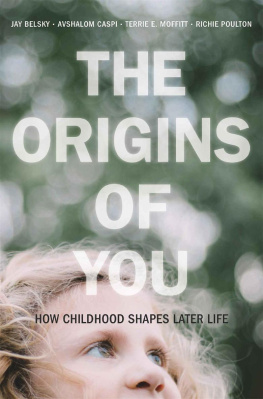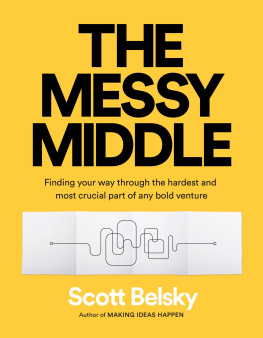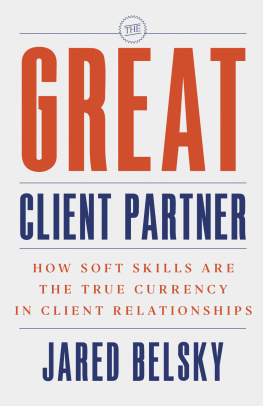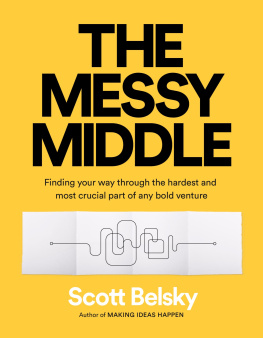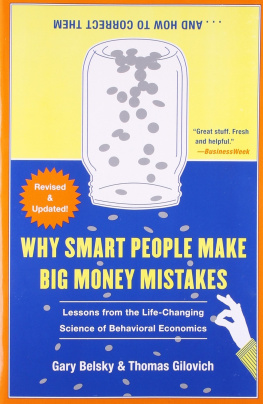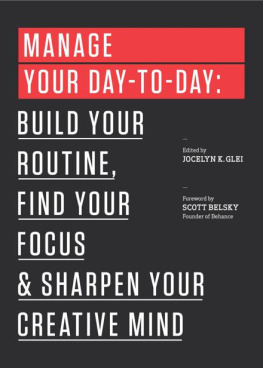Jay Belsky - The Origins of You
Here you can read online Jay Belsky - The Origins of You full text of the book (entire story) in english for free. Download pdf and epub, get meaning, cover and reviews about this ebook. year: 2020, publisher: Harvard University Press, genre: Children. Description of the work, (preface) as well as reviews are available. Best literature library LitArk.com created for fans of good reading and offers a wide selection of genres:
Romance novel
Science fiction
Adventure
Detective
Science
History
Home and family
Prose
Art
Politics
Computer
Non-fiction
Religion
Business
Children
Humor
Choose a favorite category and find really read worthwhile books. Enjoy immersion in the world of imagination, feel the emotions of the characters or learn something new for yourself, make an fascinating discovery.
- Book:The Origins of You
- Author:
- Publisher:Harvard University Press
- Genre:
- Year:2020
- Rating:3 / 5
- Favourites:Add to favourites
- Your mark:
- 60
- 1
- 2
- 3
- 4
- 5
The Origins of You: summary, description and annotation
We offer to read an annotation, description, summary or preface (depends on what the author of the book "The Origins of You" wrote himself). If you haven't found the necessary information about the book — write in the comments, we will try to find it.
The Origins of You — read online for free the complete book (whole text) full work
Below is the text of the book, divided by pages. System saving the place of the last page read, allows you to conveniently read the book "The Origins of You" online for free, without having to search again every time where you left off. Put a bookmark, and you can go to the page where you finished reading at any time.
Font size:
Interval:
Bookmark:
THE ORIGINS OF YOU
How Childhood Shapes Later Life
Jay BelskyAvshalom CaspiTerrie E. MoffittRichie Poulton


Cambridge, Massachusetts & London, England|2020
Copyright 2020 by Jay Belsky, Avshalom Caspi, Terrie E. Moffitt, and Richie Poulton
All rights reserved
Jacket design: Annamarie McMahon Why
Jacket image: Annie Otzen Getty Images
978-0-674-98345-8 (hardcover)
978-0-674-24543-3 (EPUB)
978-0-674-24545-7 (MOBI)
978-0-674-24514-3 (PDF)
The Library of Congress has cataloged the printed edition as follows:
Names: Belsky, Jay, 1952 author. | Caspi, Avshalom, author. | Moffitt, Terrie E., author. | Poulton, Richie, 1962 author.
Title: The origins of you : how childhood shapes later life / Jay Belsky, Avshalom Caspi, Terrie E. Moffitt, Richie Poulton.
Description: Cambridge, Massachusetts : Harvard University Press, 2020. | Includes bibliographical references and index.
Identifiers: LCCN 2019050707
Subjects: LCSH: Developmental psychology. | Developmental biology. | Nature and nurture. | Child development.
Classification: LCC BF713 .B445 2020 | DDC 155dc23
LC record available at https://lccn.loc.gov/2019050707
The first time I met Terrie Moffitt was in the late 1980s, during a visit to a city in northern Finland where both of us were attending an international conference on human development. Temi, as she likes to be called, was sitting at the hotel bar, talking to Avshalom Caspi, whom I knewbut more as a younger colleague than a close friend, as he and Temi would become. As I approached Avshalom, who was deep in conversation with Temi, I overheard them discussing pubertal development. In my impulsive New York manner, I butted in and said, Hi, Avshalom, Ive got a hypothesis about puberty for you.
I had recently become enamored with evolutionary biologys argument that the purpose of life is to pass on genes to the next generation and future descendants (grandchildren, great-grandchildren, and so on). Although this idea is central to the thinking of virtually all biological scientists studying nonhuman life, it remains foreign to most students of human development, especially those investigating whether and how experiences in the family affect the developing child. Their more traditional frame of reference emphasizes health, happiness, and well-being, leading most developmental scholars to view life in terms of healthy versus unhealthy or optimal versus compromised development rather than in terms of reproductive success.
Although I was intrigued by evolutionary thinking, I struggled to come up with a hypothesis that, if confirmed, would convince meand, I hoped, othersthat an evolutionary perspective had much to offer students of human development. This led eventually to the hypothesis that I shared with Temi and Avshalom, which no traditional development perspective had ever stimulated or could account for if true: Because growing up under adverse conditions increases the risk of dying or having ones development compromised before reproducing, adverse childhood experience should accelerate pubertal development and thereby sexual maturation and fertility. In other words, family economic and social conditions should regulate physical developmentby influencing the timing of pubertynot just, as has long been appreciated by traditional developmental reasoning, psychological and behavioral development.
I knew immediately after sharing my hypothesis with Avshalom and Temi that I would become fast friends with both of them, though perhaps Temi in particular. Why? Because of how the person who turned out to be Avshaloms fiance responded to my potentially outrageous proposition that family processes would influence pubertal development. Temi didnt make a face that said who is this impolite guy interrupting our conversation?a response that my New York style had provoked before. Nor did she, as so many others had, dismiss the idea out of hand because it challenged sacred theoretical cows about who was healthy, what was optimal development, and thus the fundamental nature of human development. (Sadly, academia is far less open-minded than many presume.) Rather, Temi responded enthusiastically and open-mindedly by immediately saying, We can test that! And so we did, as detailed in , using data from the Dunedin Multidisciplinary Health and Development Study, the focus of most of this book.
It is critical to appreciate that neither Temi nor Avshalom was embracing my evolutionary perspective or the puberty hypothesis it yielded. Instead, they evinced a scientific mind-set, agreeing that its a potentially interesting, certainly provocative idea, and one that can be subject to empirical evaluation. I was, of course, both eager to see the hypothesis tested and anxious that I could be proven wrong. But, like my newfound friends, I live in a scientific worldthe empirical chips would fall wherever they might and that would be that. After all, what was the worst that could happen? I could be wrong!
Anyway, this was the beginning of a long-lasting and lovely friendship. As I came to follow my friends and colleagues work, I kept feeling that however much (deserved) attention it received in the most prestigious scholarly journals and however many journalists wrote about it in newspapers, magazines, and social media posts, too few people understood and appreciated the scope of their many contributions to our understanding of how we develop. I kept hoping that a Pulitzer Prizewinning science writer would come along and write a popular book about their research. I had no doubt that such a book could prove to be a great seller, but as the years went by and no such professional writer materialized to harvest the fruits of Avshalom and Temis (and their collaborators) labors, I decided that I would try my hand at it. I appreciated that I was not the writer I was hoping for, so I proposed to my friends that I would write what I hoped would be an engaging book summarizing for a lay audience manybut by no means allof their contributions. I wanted to share the insight, even excitement, that comes from investigating how humans develop, while also informing readers how such work is done. That is why I initially thought we would use as the title for the book Adventures in Human Development: How We Become Who We Are. I decided that a book that didnt require the reader to read the chapters in order might be the best way to realize these goals. Not only would it be doable for the writer, but more importantly it could prove attractive to todays readers, whose attention spans seem to be growing shorter and whose interests are not the same.
My original intent was to be the voice of Moffitt, Caspi, and their friend and collaborator Richie Poulton, now my friend, too, but as the proposal for the volume developed, it seemed reasonable to make two slight modifications to the original plan. First, in addition to sharing work on the Dunedin Multidisciplinary Health and Development Study, based in New Zealand, which I was involved in to a very limited extent (covered in , focused on family influences on female pubertal development, also includes evidence from this third research project.
Given that I was the principal writer of this volumebut writing about work carried out almost entirely by otherswe all agreed that writing in the first person plural made the most sense. All of us contributed to the birth of the research ideas in this book, in many late-night sessions of idea bouncing, and, of the hundreds of research reports on numerous topics related to human development emanating from the Dunedin and Environmental-Risk studies, I decided which to cover.
Font size:
Interval:
Bookmark:
Similar books «The Origins of You»
Look at similar books to The Origins of You. We have selected literature similar in name and meaning in the hope of providing readers with more options to find new, interesting, not yet read works.
Discussion, reviews of the book The Origins of You and just readers' own opinions. Leave your comments, write what you think about the work, its meaning or the main characters. Specify what exactly you liked and what you didn't like, and why you think so.

